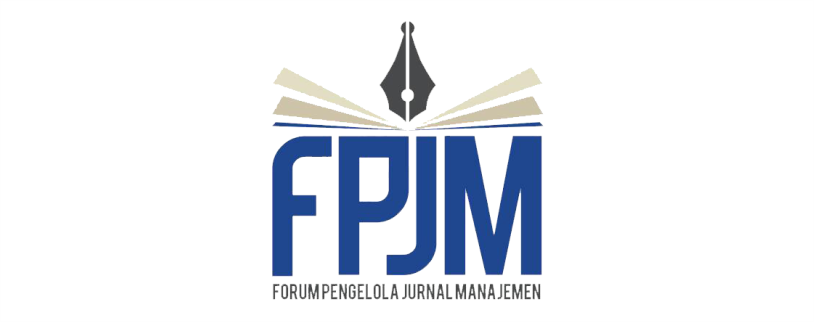The Influence of Social Comparison Orientation on Attitudinal Loyalty, Brand Happiness, and Willingness to Purchase a Masstige Brand
DOI:
https://doi.org/10.26905/jmdk.v11i2.10501Keywords:
Attitudinal Loyalty, Brand Happiness, Masstige Brand, Social Comparison Orientation, Willingness to PurchaseAbstract
Individuals often compare themselves to others because of the rise of social media, which can make them want to buy something like a luxury brand. However, reaching luxury brand will be difficult because in addition to the high price, the product is also made in limited quantities. Therefore, masstige brand is an alternative that companies can use. This study aims to determine the effect of social comparison orientation on willingness to purchase masstige brands and their impact on attitudinal loyalty and brand happiness. In this study, there were 211 participants. Structured equation modeling was used to analyze data. The results of analysis show social comparison orientation has an impact on willingness to purchase a masstige brand, resulting in attitudinal loyalty and brand happiness.
Downloads
References
Andraszewicz, S., Kaszás, D., Zeisberger, S., & Hölscher, C. (2022). The influence of upward social comparison on retail trading behavior. Social Comparison and Trading Behavior. https://doi.org/10.31219/osf.io/48deq
Bandyopadhyay, S., & Martell, M. (2007). Does attitudinal loyalty influence behavioral loyalty? A theoretical and empirical study. Journal of Retailing and Consumer Services, 14(1), 35–44. https://doi.org/10.1016/j.jretconser.2006.03.002
Bilro, R. G., Loureiro, S. M. C., & dos Santos, J. F. (2022). Masstige strategies on social media: The influence on sentiments and attitude toward the brand. International Journal of Consumer Studies, 46(4), 1113–1126. https://doi.org/10.1111/ijcs.12747
Brakus, J. J., Chen, W., Schmitt, B., & Zarantonello, L. (2022). Experiences and happiness: The role of gender. Psychology & Marketing, 39(8), 1646–1659. https://doi.org/10.1002/mar.21677
Burhanudin, B. (2023). Masstige marketing: addressing shortâ€term and longâ€term happiness. International Journal of Consumer Studies. https://doi.org/10.1111/ijcs.12893
Burhanudin, B., & Putri, S. S. (2023). The consequences of social comparison on price-quality schema, prestige sensitivity, and willingness to purchase. Jurnal Manajemen dan Inovasi (MANOVA), 6(2), 63–82.
Cohen, J. (1988). Statistical Power Analysis for the Behavioral Sciences. Mahwah, NJ: Lawrence Erlbaum.
Choi, A. (2020). Social comparison in fashion blogging:“Creative self†as the new genre in fashion communication. Journal of Fashion Marketing and Management: An International Journal, 24(4), 651–665. https://doi.org/10.1108/JFMM-07-2019-0140
Dandis, A., & Wright, L. T. (2020). The effects of CARTER model on attitudinal loyalty in Islamic banks. International Journal of Quality and Service Sciences, 12(2), 149–171. https://doi.org/10.1108/IJQSS-03-2019-0050
Ehrenberg, A. S. C. (2000). Repeat buying. Journal of Empirical Generalisations in Marketing Science, 5(2).
Falk, R. F., & Miller, N. B. (1992). A primer for soft modeling. University of Akron Press.
Fornell, C., & Larcker, D. F. (1981). Evaluating structural equation models with unobservable variables and measurement error. Journal of Marketing Research, 18(1), 39–50. https://doi.org/10.2307/3151312
GarcÃa-Salirrosas, E. E., & Acevedo-Duque, Ã. (2022). PERVAINCONSA Scale to Measure the Consumer Behavior of Online Stores of MSMEs Engaged in the Sale of Clothing. Sustainability, 14(5), 2638. https://doi.org/10.3390/su14052638
Gerber, J. P. (2020). Social comparison theory. Encyclopedia of Personality and Individual Differences, 5004–5011. https://doi.org/10.1037/bul0000127
Goyal, A. (2020). Consumer perceived associations of Masstige brands: An Indian perspective. Journal of Promotion Management, 27(3), 399–416.
https://doi.org/10.1080/10496491.2020.1838027
Gravetter, F. J., & Forzano, L.-A. B. (2018). Research methods for the behavioral sciences. Cengage learning.
Hair, J. F., Ringle, C. M., & Sarstedt, M. (2011). PLS-SEM: Indeed a silver bullet. Journal of Marketing Theory and Practice, 19(2), 139–152. https://doi.org/10.2753/MTP1069-6679190202
Hair, J. F., Risher, J. J., Sarstedt, M., & Ringle, C. M. (2019). When to use and how to report the results of PLS-SEM. European Business Review, 31(1), 2–24. https://doi.org/10.1108/EBR-11-2018-0203
Hair, J. F. J., Hult, G. T. M., Ringle, C. M., Sarstedt, M., Danks, N. P., & Ray, S. (2021). Partial Least Squares Structural Equation Modeling (PLS-SEM) Using R: A Workbook. Cham: Springer.
Handoyo, T. W., & Mani, L. (2021). Repurchase decision on iPhone in Indonesia; the influenced of social media between Utilitarian and Hedonic values in customer satisfaction. Turkish Journal of Computer and Mathematics Education (TURCOMAT), 12(6), 4825–4834. https://doi.org/10.17762/turcomat.v12i6.8661
Hawkins, K., & Vel, P. (2013). Attitudinal loyalty, behavioural loyalty and social media: An introspection. The Marketing Review, 13(2), 125–141.
http://dx.doi.org/10.1362/146934713X13699019904605
Hogg, M. K., Bruce, M., & Hough, K. (1999). Female images in advertising: the implications of social comparison for marketing. International Journal of Advertising, 18(4), 445–473. https://doi.org/10.1080/02650487.1999.11104773
Huwae, V., Tehuayo, E., Tamher, E. R., & Rumuar, F. H. M. (2023). Lifestyle and brand association on iphone smartphone purchase decisions in Ambon. Jurnal Ekonomi, 12(3), 47–54.
Hwang, J., & Han, H. (2014). Examining strategies for maximizing and utilizing brand prestige in the luxury cruise industry. Tourism Management, 40, 244–259. https://doi.org/10.1016/j.tourman.2013.06.007
Kassie, B. A., & Bang, J. (2022). Is it recession-proof? Masstige purchase intention: The moderating effect of perceived economic crisis. SHS Web of Conferences, 132, 01013. https://doi.org/10.1051/shsconf/202213201013
Khan, M. T. (2013). Customers loyalty: Concept & definition (a review). International Journal of Information, Business and Management, 5(3), 168–191.
Kim, J.-E., Lloyd, S., Adebeshin, K., & Kang, J.-Y. M. (2019). Decoding fashion advertising symbolism in masstige and luxury brands. Journal of Fashion Marketing and Management: An International Journal, 23(2), 277–295. https://doi.org/10.1108/JFMM-04-2018-0047
Kumar, A., Paul, J., & StarÄević, S. (2021). Do brands make consumers happy?-A masstige theory perspective. Journal of Retailing and Consumer Services, 58, 102318. https://doi.org/10.1016/j.jretconser.2020.102318
Kumar, A., Paul, J., & Unnithan, A. B. (2020). ‘Masstige’marketing: A review, synthesis and research agenda. Journal of Business Research, 113, 384–398. https://doi.org/10.1016/j.jbusres.2019.09.030
Le, M. H., & Nguyen, P. M. (2022). Integrating the theory of planned behavior and the norm activation model to investigate organic food purchase intention: evidence from Vietnam. Sustainability, 14(2), 816. https://doi.org/10.3390/su14020816
Majid, N., KW, N. I., & Hariyana, N. (2022). The role of self-concept to encourage Iphone users’ loyalty. Inovbiz: Jurnal Inovasi Bisnis, 9(2), 73–78. https://doi.org/10.35314/inovbiz.v9i2.2037
Mechinda, P., Serirat, S., & Gulid, N. (2009). An examination of tourists’ attitudinal and behavioral loyalty: Comparison between domestic and international tourists. Journal of Vacation Marketing, 15(2), 129–148. https://doi.org/10.1177/1356766708100820
Ong, C. H., Md. Salleh, S., & Zien Yusoff, R. (2016). The role of emotional and rational trust in explaining attitudinal and behavioral loyalty: An insight into SME brands. Gadjah Mada International Journal of Business, 18(1), 1–19. https://doi.org/10.22146/gamaijb.9285
Paul, J. (2015). Masstige marketing redefined and mapped: Introducing a pyramid model and MMS measure. Marketing Intelligence & Planning, 33(5), 691-706. https://doi.org/10.1108/MIP-02-2014-0028
Paul, J. (2018). Toward a’masstige’theory and strategy for marketing. European Journal of International Management, 12(5–6), 722–745. https://doi.org/10.1504/EJIM.2018.094466
Paul, J. (2019). Masstige model and measure for brand management. European Management Journal, 37(3), 299–312. https://doi.org/10.1016/j.emj.2018.07.003
Pillai, K. G., & Nair, S. R. (2021). The effect of social comparison orientation on luxury purchase intentions. Journal of Business Research, 134, 89–100. https://doi.org/10.1016/j.jbusres.2021.05.033
Purohit, S., & Radia, K. N. (2022). Conceptualizing masstige buying behavior: A mixed-method approach. Journal of Business Research, 142, 886–898. https://doi.org/10.1016/j.jbusres.2022.01.023
Saini, S., & Singh, J. (2020a). A link between attitudinal and behavioral loyalty of service customers. Business Perspectives and Research, 8(2), 205–215. https://doi.org/10.1177/2278533719887452
Schnebelen, S., & Bruhn, M. (2018). An appraisal framework of the determinants and consequences of brand happiness. Psychology & Marketing, 35(2), 101–119. https://doi.org/10.1002/mar.21073
Shahid, S., & Paul, J. (2021). Intrinsic motivation of luxury consumers in an emerging market. Journal of Retailing and Consumer Services, 61, 102531. https://doi.org/10.1016/j.jretconser.2021.102531
Shankar, V., Smith, A. K., & Rangaswamy, A. (2003). Customer satisfaction and loyalty in online and offline environments. International Journal of Research in Marketing, 20(2), 153–175. https://doi.org/10.1016/S0167-8116(03)00016-8
Shao, A., & Li, H. (2021). How do utilitarian versus hedonic products influence choice preferences: Mediating effect of social comparison. Psychology & Marketing, 38(8), 1250–1261. https://doi.org/10.1002/mar.21520
Sun, G., Li, J., Cheng, Z., D’Alessandro, S., & Johnson, L. (2021). Consumer personality factors and iPhone consumption in China. Journal of Consumer Behaviour, 20(4), 862–870. https://doi.org/10.1002/cb.1899
Tuhkanen, O. (2022). The effects of perceived customer engagement activities on attitudinal loyalty, Customer-Based Brand Equity (CBBE), and crowd attendances at local football clubs.
Downloads
Published
Issue
Section
License
Authors who publish with this journal agree to the following terms:
(1)Â Copyright of the published articles will be transferred to the journal as the publisher of the manuscripts. Therefore, the author confirms that the copyright has been managed by the journal.
(2) Publisher of Jurnal Penelitian is University of Merdeka Malang.
(3) The copyright follows Creative Commons Attribution–ShareAlike License (CC BY SA): This license allows to Share — copy and redistribute the material in any medium or format, Adapt — remix, transform, and build upon the material, for any purpose, even commercially.












